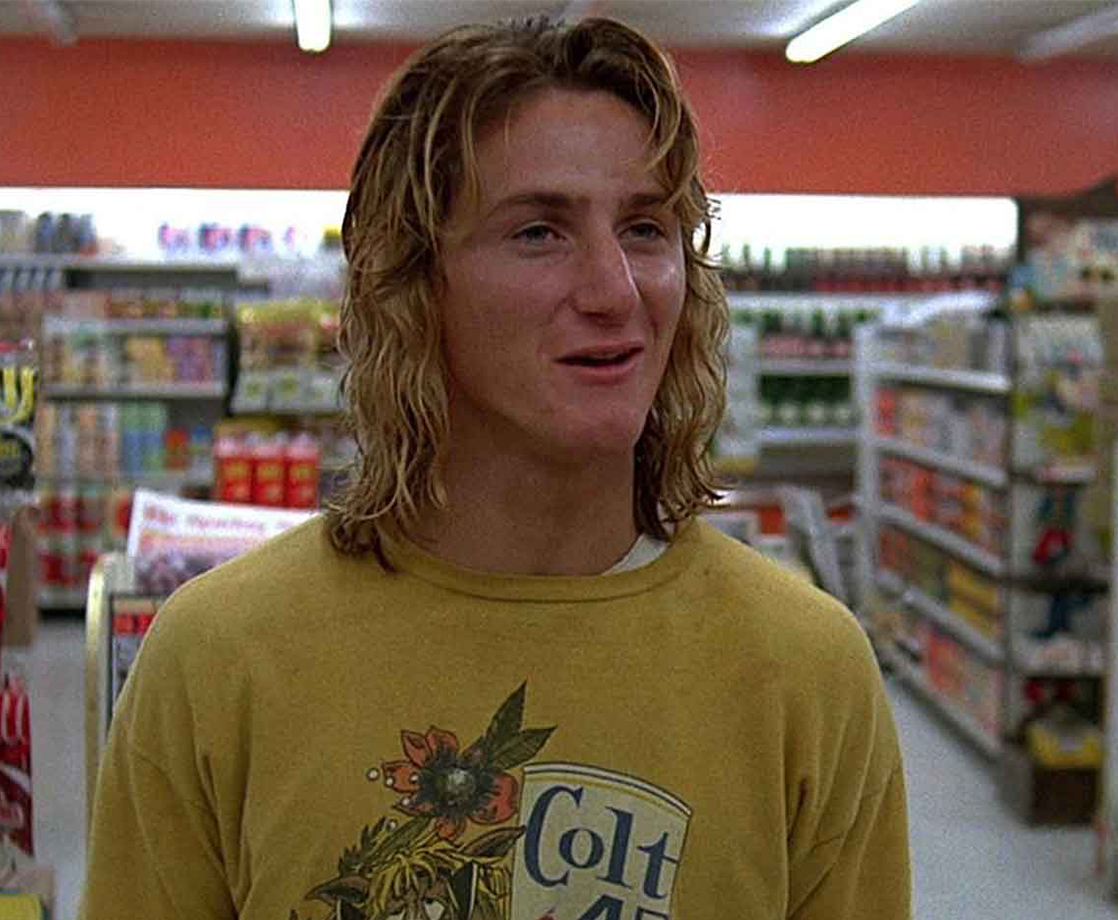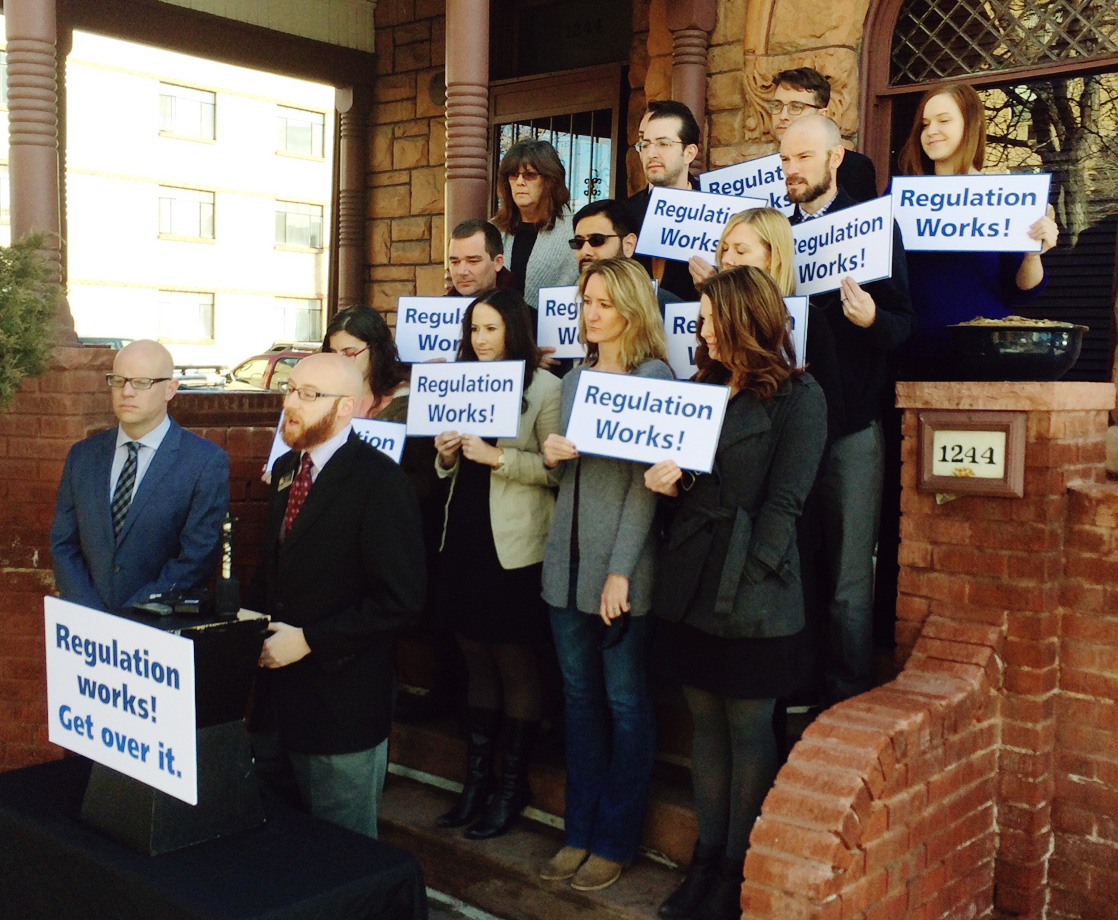I don't know how I've managed to live on this planet in relatively good standing for over two and a half decades, and yet never once actually watched Fast Times at Ridgemont High. But here we are. An American classic of the highest order, Fast Times is in the Mount Rushmore of teen films as both a source of reference — Fountains Of Wayne's 2003 hit "Stacy's Mom" pays homage to the film in both song and video, for starters — and for serving as the launching pad for the careers of multiple first-timers. The film marks the debut screen appearances of no less than Jennifer Jason Leigh, Eric Stotlz, Anthony Edwards, Nicholas Cage, Forrest Whitaker, and Sean motherfucking Penn himself. Watching the film, there are nine cumulative future Oscar nominations, and three collective future wins amongst the cast. This is to say nothing of the debut of Amy Heckerling and Cameron Crowe, the film's director and screenwriter, respectively.
Last month marked the 35th anniversary of the film's release, and as we inch past the summer months and enter "Back to School" season, now felt like the perfect time to dive into one of a small number of movies to hit the venn diagram of teen film and stoner classic. The film fuses the two through none other than Jeff Spicoli, the surf-obsessed stoner played rapturously by Penn. Even with two Oscar wins under his belt, and a history as l'enfant terrible of Hollywood, Spicoli follows Penn around like an ulcer. It's unclear whether or not Penn has much of a real life sense of humor; one read of his 2016 interview with El Chapo for Rolling Stone would tell you that this is someone who has no idea how funny he is even when he's very serious. But it's either an honor or karma that Spicoli is bound to feature prominently in any Penn retrospective at an awards show.
And rightfully so. Spicoli is, in many way, the foundational archetype of the West Coast cinematic stoner. The stoner sensibility has always incorporated the DNA of the Golden State. Through the countercultural embrace of cannabis, and the free love movement's migration out West, the two fused together through cultural osmosis in a way that has always felt more cosmic than geographic. Penn's Spicoli however, with his wavy blonde hair, his deep Valley inflection, and his perennial optimism — that do-gooder mentality is in stark contrast to depictions of the stoner as a catatonic loaf — finally makes good on the relationship between weed and the West. His California persona is peak stoner, peak surfer, peak beach bum — a full-fledged Frankenstein of everything that would come to denote a particular stoner archetype for the next 20 years; it makes him the founding father of a certain kind of bud-fueled cool. Though Jeff Bridges is ten years Penn's senior, Spicoli feels like he could be an ancestor of The Dude.
Still, while Spicoli is easily the film's most famous character, his role functions more as a recurring gag. His relationship with a short-tempered history teacher, Mr. Hand, provides the comedic tension of Penn's surprisingly few scenes. In one, he orders a pizza to be delivered mid-class; in another, he wrecks the campus quarterback's car and frames the opposing team. In as much as the film has a plot, it belongs to the adolescent blooming of Stacy (Jennifer Jason Leigh), who begins the movie asking how to give a blowjob and ends it having to deal with an unwanted pregnancy. In between are the typical teen movie signposts: virginity, less of a destination here than a first-act pit stop; boyfriends, of which the loud ones cut the line, but the quiet ones last longer; and the joyful malaise of summer employment.
Stacy's story is pretty standard fodder; these films are usually coming-of-age stories meant to be broadly applicable. Its time and place, however, make it stand out. When the film reaches a third-act plot point where a piss-poor sexual encounter results in the aforementioned unplanned pregnancy, the film rather wisely avoids afterschool-special dramatics. The plot isn't played for laughs, but it doesn't cue the violins either — the unfortunate situation, the film says, is somehow par for the course. The ease with which it presents Stacy's decision, however, struck me as fascinating.
Fast Times was released in 1982, one year into the presidency of Ronald Reagan, which marked the beginning of a decade's harsh right swing into conservatism. As the 1980s wore on, a return to traditional family values imbued the culture with a tone meant to all but reject the liberation of the decades before it. More than anything else, this was motivated by a misplaced need to protect the youth from potentially dangerous influences, yet in spite of this, the 1980s managed to produce an entire subgenre of teen film: the raunchy sex comedy.
Films like Porkys, Loosin' It, Mischief, all the way to Weird Science, Revenge of the Nerds, and Hotbodies all prioritized the sexual exploits of teenagers with real R-rated gall. These films are somewhat of an anomaly, produced in a decade marred by a calcifying of the status quo. The totems of the decade are all over Fast Times, most notably in its depictions of malls as the town's central nervous system. The film opens inside a mall, and soon cuts to the chaos of Ridgemont High's hallway, juxtaposing the messy interiors of the school with the clean functionality of the shopping center, presenting capitalism as a desirable new world order.
The movie depicts these sites of teenhood with real sincerity. It would be another 13 years before Amy Heckerling would find satire in the bumbling materialism of Southern California, perfecting it in Clueless. But here, Cameron Crowe's script doubles down on these new American values with generosity. It's a fascinating flashpoint to witness; the decade's conservatism wouldn't take hold for some time. In a way, even with the puritan tendencies of the era in the rearview, teen films would rarely feel this audacious again, and when they did, they were an event. Today, a teen film with an abortion subplot would be treated with the delicacy of a hot plate. Yet raunchy comedies were coming out nearly weekly in the 1980s, presenting an interesting foil to the decade's social and cultural reputation outside the silver screen.
In this way, the film's depiction of weed is a brilliant afterthought. Sex seems to be the order of the day; weed use is almost entirely unmentioned, save a moment in which Mr. Hand picks up a cigarette and inspects it by smelling it. Yet the film remains a relic in the stoner pantheon. As the American Graffiti for the post-Watergate generation, Fast Times sits at a fascinating cultural bleed, carrying over some of the prior decade's flexibility regarding weed, and signaling that even as a new dawn emerged, a rejection of cultural mores had already burrowed itself deep into the soil, spreading root like weeds.
Follow Rod Bastanmehr on Twitter











